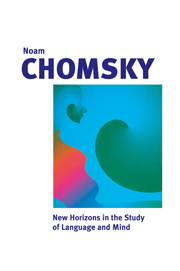Book contents
- Frontmatter
- Contents
- Foreword by Neil Smith
- Acknowledgements
- Introduction
- 1 New horizons in the study of language
- 2 Explaining language use
- 3 Language and interpretation: philosophical reflections and empirical inquiry
- 4 Naturalism and dualism in the study of language and mind
- 5 Language as a natural object
- 6 Language from an internalist perspective
- 7 Internalist explorations
- Notes
- References
- Index
4 - Naturalism and dualism in the study of language and mind
Published online by Cambridge University Press: 05 June 2012
- Frontmatter
- Contents
- Foreword by Neil Smith
- Acknowledgements
- Introduction
- 1 New horizons in the study of language
- 2 Explaining language use
- 3 Language and interpretation: philosophical reflections and empirical inquiry
- 4 Naturalism and dualism in the study of language and mind
- 5 Language as a natural object
- 6 Language from an internalist perspective
- 7 Internalist explorations
- Notes
- References
- Index
Summary
The terms of the title can be understood in various ways, along with the frameworks in which they are embedded. I would like to outline interpretations that I think are useful and proper, and to suggest a more general thesis, which would require much more comprehensive argument: that there is no coherent alternative to proceeding in this way for the range of issues addressed, and that other endeavors in roughly the same realm are clarified and facilitated if understood as extensions of the approach outlined.
Deflating the terms
Putting “language” aside for the moment, let's begin by taking the other terms of the title in ways that are innocent of far-reaching implications, specifically, divorced from any metaphysical connotations. Take the term “mind” or, as a preliminary, “mental.” Consider how we use such terms as “chemical,” “optical,” or “electrical.” Certain phenomena, events, processes, and states are called “chemical” (etc.), but no meta-physical divide is suggested by that usage. These are just various aspects of the world that we select as a focus of attention for the purposes of inquiry and exposition. I will understand the term “mental” in much the same way, with something like its traditional coverage, but without metaphysical import and with no suggestion that it would make any sense to try to identify the true criterion or mark of the mental.
Information
- Type
- Chapter
- Information
- New Horizons in the Study of Language and Mind , pp. 75 - 105Publisher: Cambridge University PressPrint publication year: 2000
Accessibility standard: Unknown
Why this information is here
This section outlines the accessibility features of this content - including support for screen readers, full keyboard navigation and high-contrast display options. This may not be relevant for you.Accessibility Information
- 2
- Cited by
